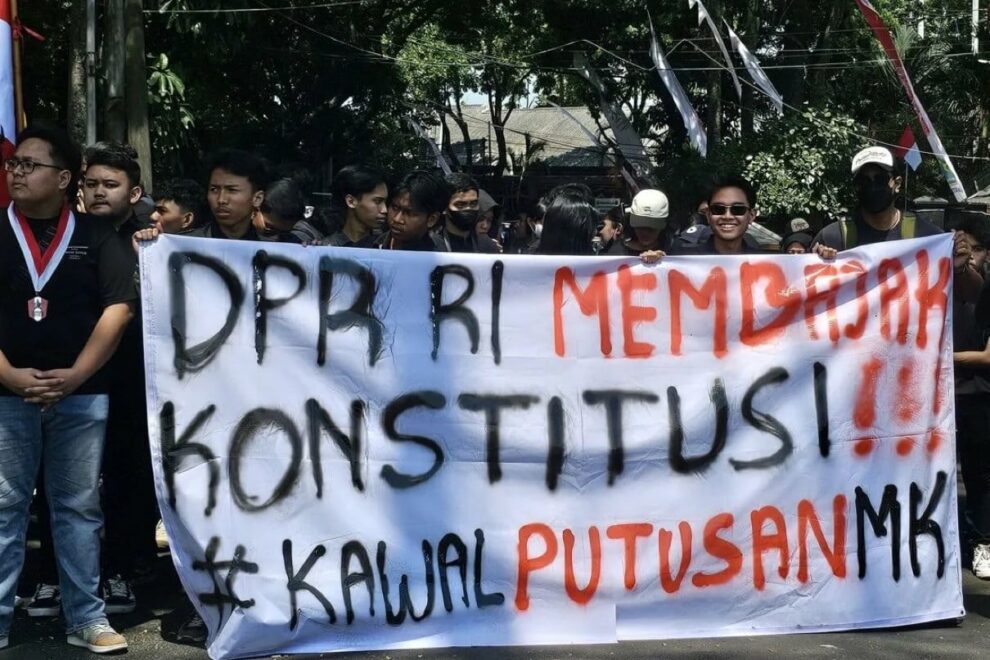Indonesian lawmakers have scrapped a controversial plan to change election rules, a parliament official announced, after thousands rallied in the capital over a move seen to help the outgoing president build a political dynasty.
Parliament was preparing to reverse a constitutional court ruling upholding candidate age requirements, which made President Joko Widodo’s youngest son ineligible for upcoming regional polls.
With thousands of protesters clamouring outside parliament, lawmakers initially delayed Thursday’s session. The demonstrations swelled as the day progressed, with students and office workers joining, despite water cannon and police in riot gear.
The parliament later announced the proposed changes would be dropped for this election period, in an apparent U-turn.
“It was officially decided that the revision of the Regional Election Law could not proceed. This means that the revision today was cancelled,” Sufmi Dasco Ahmad, deputy speaker of the House of Representatives, told reporters after clashes between protesters and police.
The protesters lit tyres on fire and set off firecrackers while chanting slogans against Widodo, more popularly known as Jokowi.
A handful of demonstrators dismantled a section of the concrete and metal fence surrounding parliament and tried to enter the complex, but police dispersed them with water cannon and tear gas.
“I came here because my country is on the verge of destruction. These lawmakers have scammed the people,” 64-year-old protester Muhammad Saleh Zakaria said.
Late on Thursday, some protesters were still starting fires in front of parliament and attempting to batter their way through its fence.
‘Desire to extend power’
The uproar comes months after Widodo’s eldest son Gibran Rakabuming Raka, 36, was elected as Indonesia’s youngest vice president, stoking nepotism accusations.
Protests were also reported in Yogyakarta, Makassar, Bandung and Semarang.
Jokowi’s office tried to calm the unrest.
“The government hopes that there will be no disinformation or slander that could trigger chaos and violence,” presidential spokesperson Hasan Nasbi told reporters.
Jokowi’s youngest son, 29-year-old Kaesang Pangarep, has been tipped for an influential post in November’s regional contest.
The president’s allies have been trying to find a way around the current minimum age of 30 for candidates by making it applicable by the time of inauguration. Kaesang turns 30 in December.
Experts said Indonesians were becoming disillusioned with Jokowi and his attempts to retain political influence.
“People are angry at the ongoing manipulation of our democratic system,” said Ika Idris, a Jakarta-based political expert at Monash University’s data and democracy research hub. “There is a clear desire to… extend power.”










